The US dollar’s days as the world's most important currency are numbered – it’s official
Central bankers reckon the dollar's days as the world’s reserve currency are numbered. But what could replace it? John Stepek takes a look at Bank of England governor Mark Carney's cunning plan.

Get the latest financial news, insights and expert analysis from our award-winning MoneyWeek team, to help you understand what really matters when it comes to your finances.
You are now subscribed
Your newsletter sign-up was successful
Want to add more newsletters?

Twice daily
MoneyWeek
Get the latest financial news, insights and expert analysis from our award-winning MoneyWeek team, to help you understand what really matters when it comes to your finances.

Four times a week
Look After My Bills
Sign up to our free money-saving newsletter, filled with the latest news and expert advice to help you find the best tips and deals for managing your bills. Start saving today!

When central bankers attended their annual get-together at Jackson Hole in Wyoming last week, all eyes were on Jerome Powell, chair of the Federal Reserve, America's central bank.
But in the end, it was Bank of England governor Mark Carney who came out with the most interesting speech.
People who talk about the "demise of the dollar" have been viewed as cranks for decades now. Yet in his own technocratic way, that's exactly what Carney was forecasting.
MoneyWeek
Subscribe to MoneyWeek today and get your first six magazine issues absolutely FREE

Sign up to Money Morning
Don't miss the latest investment and personal finances news, market analysis, plus money-saving tips with our free twice-daily newsletter
Don't miss the latest investment and personal finances news, market analysis, plus money-saving tips with our free twice-daily newsletter
The end of the current global monetary regime.
The problem with the dominance of the US dollar
One thing that we've pointed out over and over again in Money Morning is that the US dollar is one of the most important prices in the world. When the US dollar is strong, monetary policy is tight for the rest of the world, and vice versa.
There are lots of reasons why: about a third of countries "peg" their currencies to the US dollar (they track its value); it accounts for about two-thirds of global currency reserves (the pots of currency held by central banks and governments); it is the currency used in at least half of international trade invoices even between countries who don't use the dollar.
In short, it's the global reserve currency. The dollar's share of global transactions of all sorts is far, far bigger than America's share of global GDP, for example.
There's a clear problem with this. If you use another country's currency, then you are subject to its monetary policy. And monetary policy that works for one country doesn't always work for another, as we've seen in the eurozone.
You can rub along together OK when monetary policy is getting looser all the time and economies are largely doing fine. But when countries get out of sync with each other, it becomes trickier. As Mark Carney pointed out at Jackson Hole last week, "when US conditions warrant tighter policy there than elsewhere, the strains in the system become evident".
And the thing is, dollar dominance has actually grown since the financial crisis, which has made this problem even worse. Carney says that research from the Bank of England "suggests that the spillover from tightening in US monetary policy to foreign GDP is now twice its 1990-2004 average".
Dollar dependence can create spirals of panic. When US rates rise, money is sucked into the US and into dollars. When investors grow risk averse, the same happens. As a result, developing economies risk seeing their countries destabilised as fickle "hot" money evacuates. They have to conduct monetary and fiscal policy with one eye on the US, rather than focus on what their own economies really need.
So what's the answer? In the first instance, Carney (in effect) calls for more global monetary policy. Central banks should cooperate more (and the US should think about how changes to its policy affect other nations), he reckons.
In the medium term, Carney highlights open-ended funds (Neil Woodford is clearly still very much on the minds of British financial policymakers) as being a potential weak point. About "$30trn of global assets are held in investment funds that are particularly flighty, reflecting their promise of daily liquidity to investors despite investing in potentially illiquid underlying assets".
He even hints that capital controls (which now go by the lovely "nudge-era" euphemism, "capital flow management") might need to be used sometimes, albeit only "in extremis".
What could replace the dollar?
But these are all sticking plasters. The solution and something which history suggests will happen inevitably in some form is to move away from the US dollar as the reserve currency.
The question is: what does Carney see happening next? He cites the renminbi, China's currency, as "the most likely candidate for true reserve currency status". However, switching from one reserve currency to another takes time and can also be quite traumatic (he cites the post-World War I transition from sterling as global reserve to the dollar). And of course, you ultimately end up with the same problem if global trade is priced in renminbi rather than dollars, nothing fundamental has changed.
So what's the answer? A "multipolar system" lots of reserve currencies, so that the world is not over-reliant on one country's currency. And how could you go about creating that?
In Carney's view, technology makes it a lot easier. You'd have a digital global reserve currency, which is tied to a "basket" of major currencies.
This sounds a lot like Facebook's "Libra" the cryptocurrency that isn't in fact a cryptocurrency. But Carney hints that a new "synthetic hegemonic currency" (SHC) which to anyone versed in science fiction tropes, sounds uncomfortably dystopian might be "best provided by the public sector, perhaps through a network of central bank digital currencies".
Of course, the question then is: who would manage such a currency? Given that Carney has been auditioning (not terribly successfully, it seems) to replace Christine Lagarde as the boss of the International Monetary Fund (IMF), it's not much of a leap to imagine that the IMF would be at the heart of this globalised monetary system. In fact, the IMF already has a prototype SHC in the form of the SDR reserve (special drawing rights).
This is all, of course, long-term stuff. But it's interesting to hear it direct from a mover and shaker within the monetary firmament. It's very clear now that the world's financial authorities are actively looking at a successor to the era of the "dollar standard" which has been in place since 1971 (which was when the US finally entirely abandoned the gold standard).
So what does it mean for you? Well, it might be long term, but I suspect this transition will still happen during the investment lifetime of many of our readers. So it's important.
The most obvious point is that this suggests you should own gold. If politicians and central bankers are going to be debating the nature of money all over again, then having a substance that people generally trust as having value in your portfolio is probably a good idea.
It's also interesting for cryptocurrencies. If you have the governments of the world creating a pseudo-crypto currency with all sorts of easily-imposed digital controls, and the alternative is a decentralised currency backed by a clear and unchanging set of rules and an incentive system for "miners", then that alternative is going to appeal to at least some people.
The increasingly calm attitude towards "capital flow management" should also ring alarm bells for investors. Take some time to look at what your money is invested in. How quickly can you really access that money in an emergency? Is your perception of liquidity accurate?
It's fine to own illiquid assets patience is a virtue that can reap dividends but you need to make sure that your view of that liquidity is correct. You don't want to try to pull your money out of a fund only to end up in a Woodford situation.
In all, it's yet more evidence that all of our assumptions about the financial system are up for grabs. Make sure that your portfolio is positioned to benefit from that kind of turbulence, rather than be upturned by it.
We'll be discussing all of this in a lot more detail at our all-day conference on 22 November. Book your ticket now.
Get the latest financial news, insights and expert analysis from our award-winning MoneyWeek team, to help you understand what really matters when it comes to your finances.

-
 UK unemployment hits highest level since 2021 – will interest rate cuts follow?
UK unemployment hits highest level since 2021 – will interest rate cuts follow?UK unemployment reached its highest rate in almost five years by the end of 2025. Is AI to blame and will the Bank of England step in with an interest rate cut in March?
-
 Did UK inflation fall in January?
Did UK inflation fall in January?After rising in December, analysts expect the next round of UK inflation data to show that disinflation returned in January
-
 The challenge with currency hedging
The challenge with currency hedgingA weaker dollar will make currency hedges more appealing, but volatile rates may complicate the results
-
 It's time to back the yen, says Dominic Frisby
It's time to back the yen, says Dominic FrisbyThe Japanese yen has been weak for a long time, says Dominic Frisby. That may soon change.
-
 Why a strong dollar hurts – and what you can do about it
Why a strong dollar hurts – and what you can do about itAnalysis The US dollar is at its strongest level in 20 years. That’s bad news for most investment assets, says John Stepek – here’s why
-
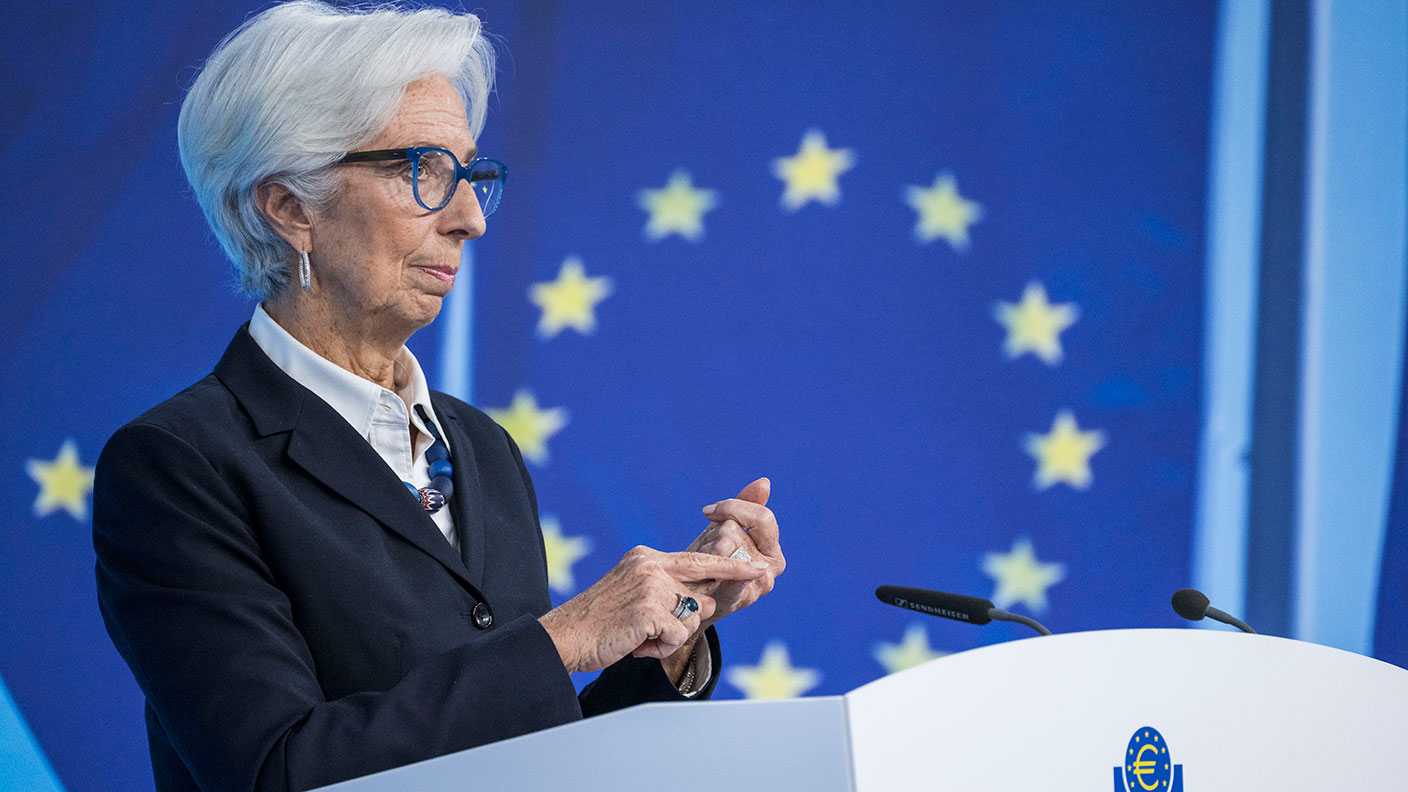 Could a stronger euro bring relief to global markets?
Could a stronger euro bring relief to global markets?Analysis The European Central Bank is set to end its negative interest rate policy. That should bring some relief to markets, says John Stepek. Here’s why.
-
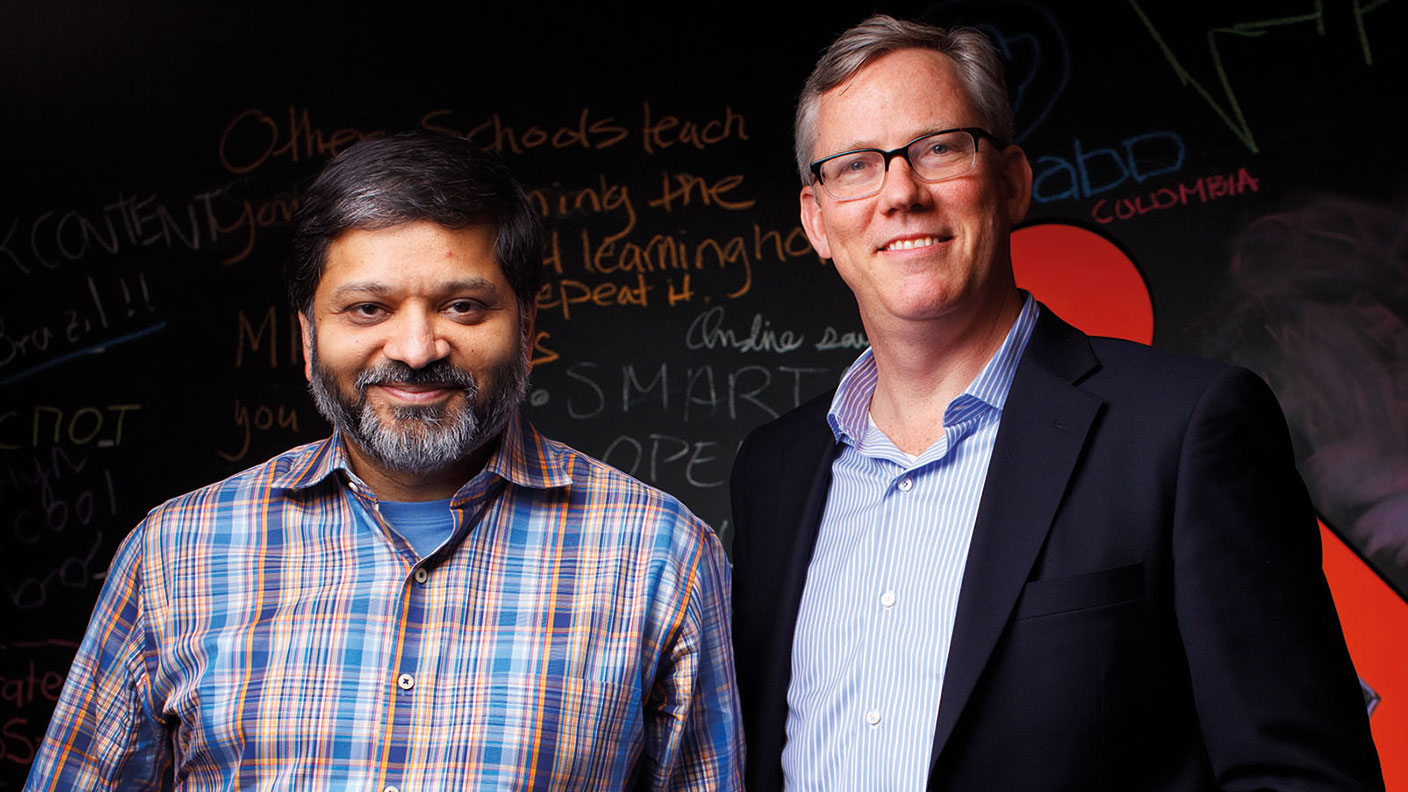 HubSpot: a tech stock set to tumble
HubSpot: a tech stock set to tumbleTips US tech stocks have had a fantastic couple of years. But this year is unlikely to be so bullish for high-fliers that can’t turn big profits.
-
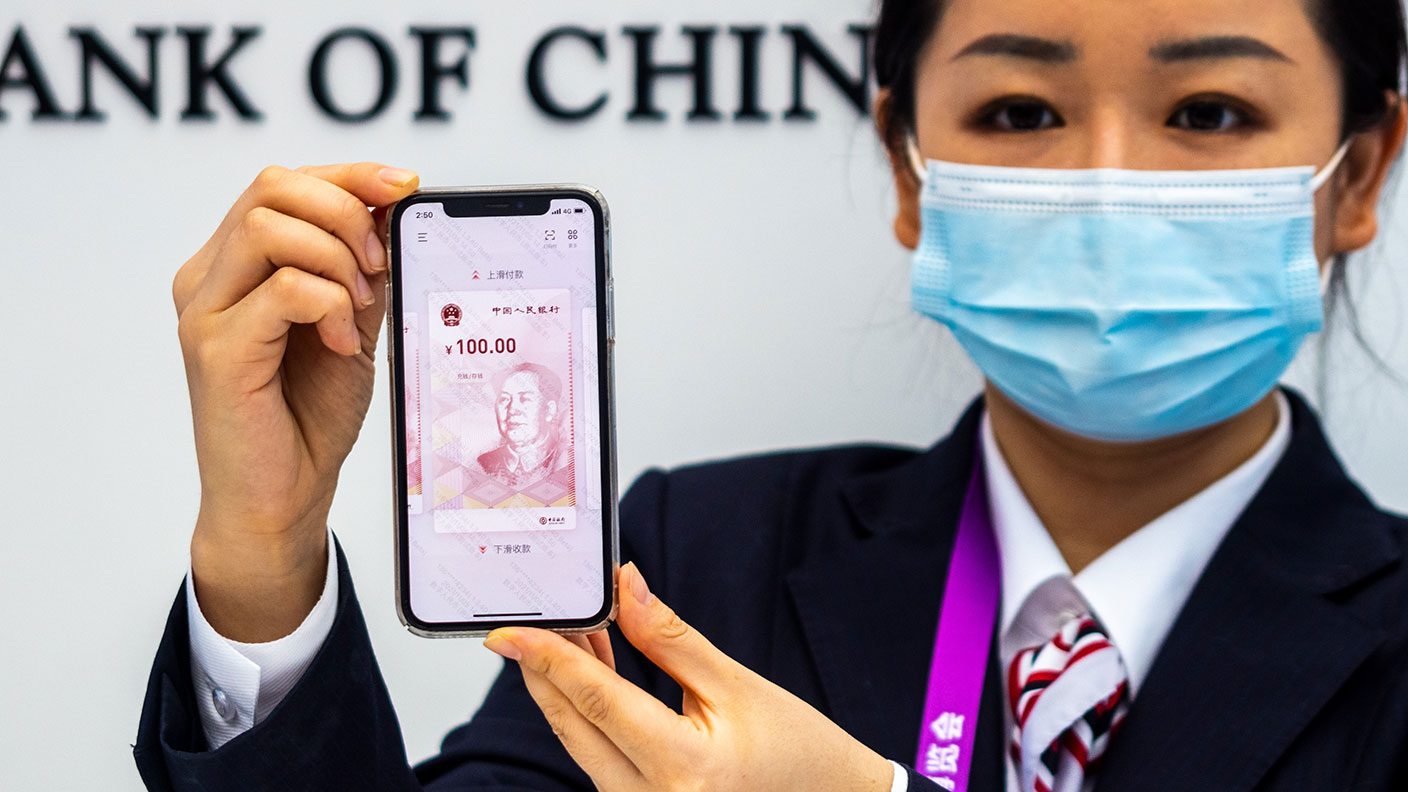 What does the future hold for central bank digital currencies?
What does the future hold for central bank digital currencies?Briefings Many of the world's central banks – including the Bank of England – have expressed an interest in creating their own digital currencies. Shivani Khandekar looks at the state of play in central bank digital currencies.
-
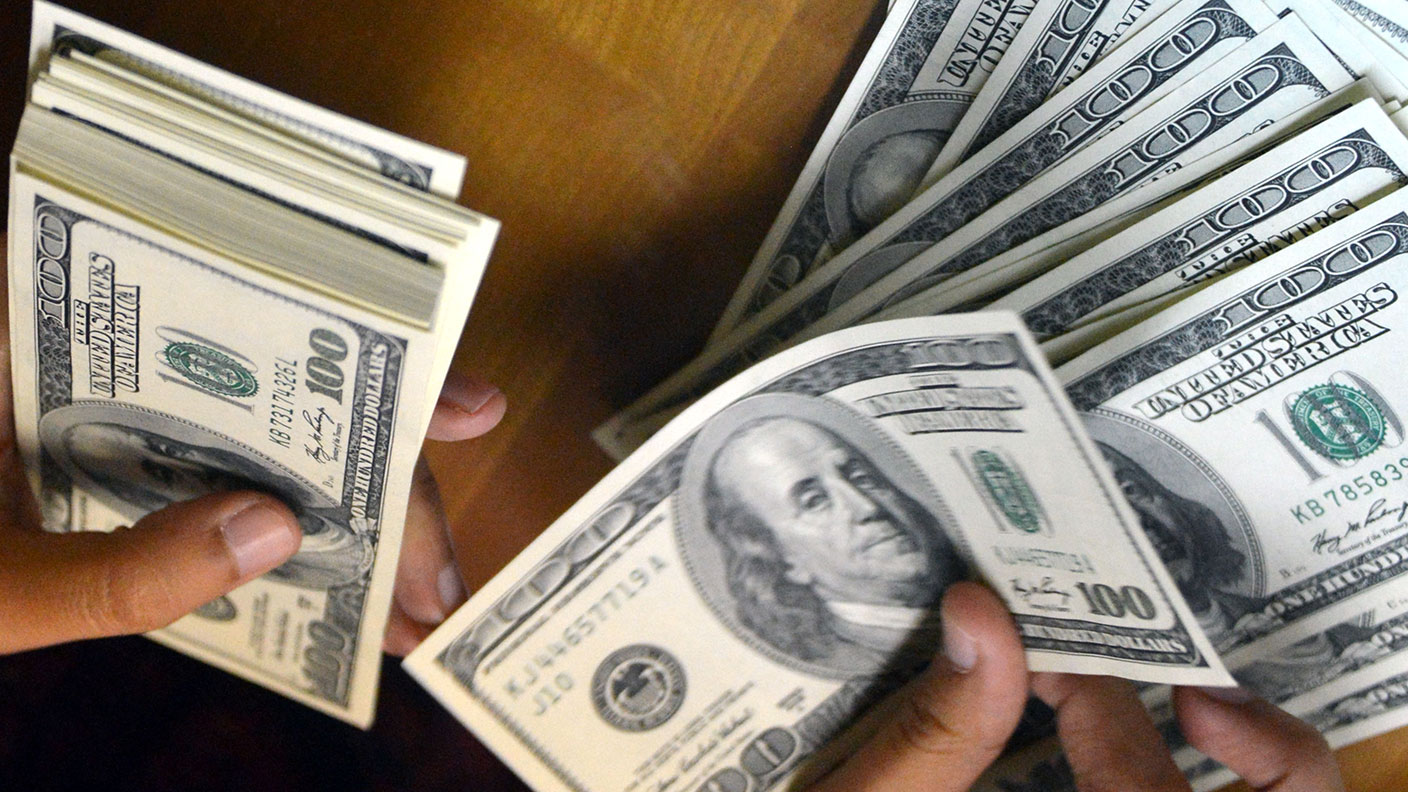 Will the market crash again? Watch the US dollar for clues
Will the market crash again? Watch the US dollar for cluesOpinion One of the biggest driving factors behind the market’s recent big sell-off was the bounce in the US dollar. John Stepek explains why the price of the dollar matters so much, and why investors should keep a keen eye on it.
-
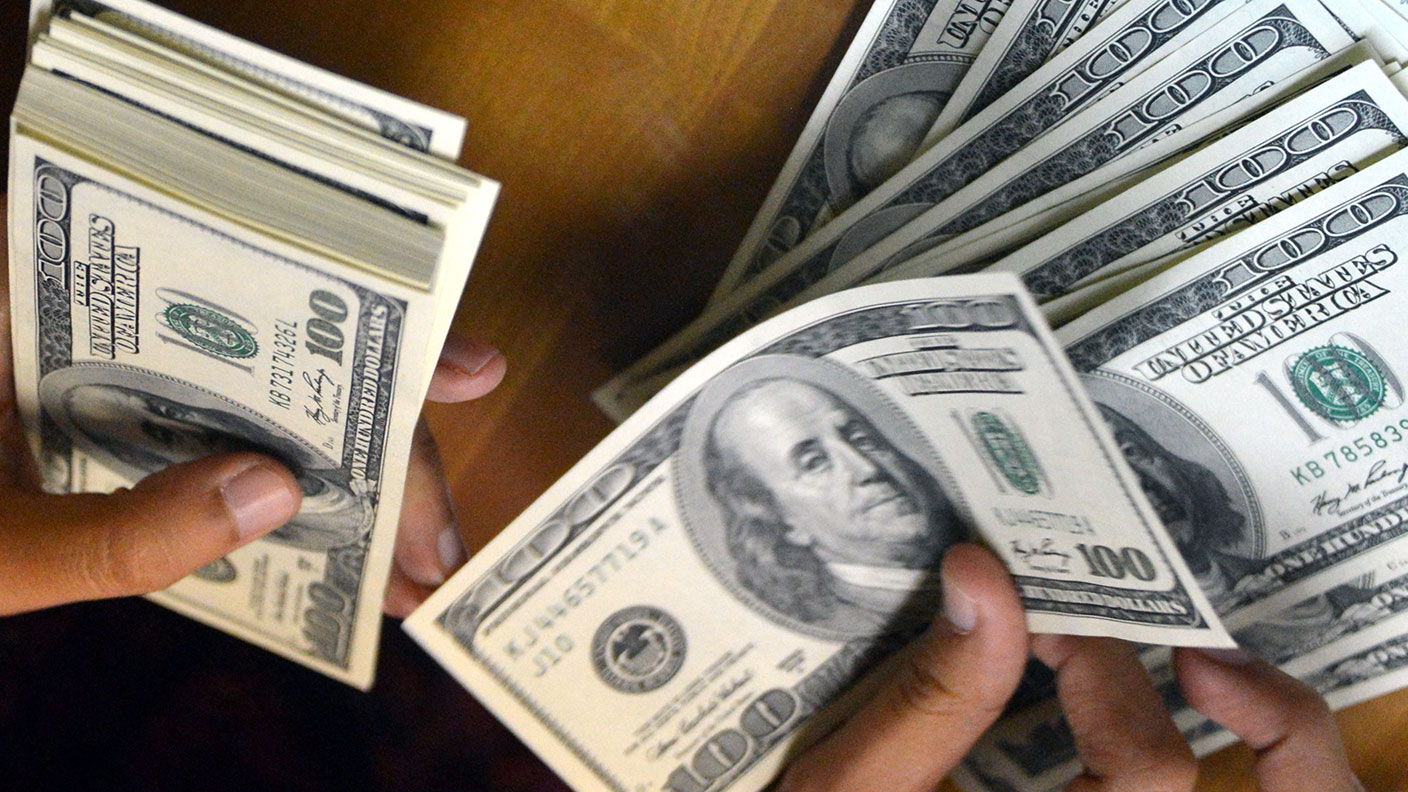 How the US dollar standard is now suffocating the global economy
How the US dollar standard is now suffocating the global economyNews In times of crisis, everyone wants cash. But not just any cash – they want the US dollar. John Stepek explains why the rush for dollars is putting a big dent in an already fragile global economy.